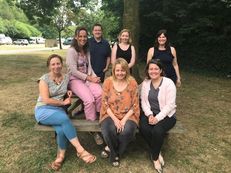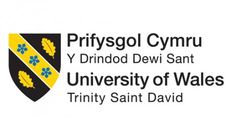Born from the desire to give all students an opportunity to access explicit learning and teaching on the seven Sustainable Development Goals of the Well-being of Future Generations (Wales) Act during their time at the University of Wales, Trinity Saint David.
‘Sustainable Development and the Well-being of Future Generations’ is an on-line, university-wide, stand-alone, non-credit bearing certificate, delivered bilingually (through the mediums of the Welsh and English languages). The course was developed by Dr Carolyn Hayles, Academic Lead for the University’s Institute of Sustainable Practice, Innovation and Resource Effectiveness (INSPIRE), in collaboration with colleagues from across three of the University’s five Faculties.
The result of this collaboration is a certificate that anyone associated with the University can take part in, widening participation from students to the University’s employees, including both academic and non-academic personnel. During its first year, 250 participants from across the University signed up to take part in the certificate over two consecutive sessions.
Top 3 learnings:
1. Collective desire for the Well-being of Future Generations (Wales) Act to deliver Sustainable Development for Wales.
2. On-line teaching delivered flexibly and conveniently can also create inclusive and collaborative learning environments.
3. There is an appetite at every level of the University for ‘relevant’ sustainability education / training.






 Except where otherwise stated, content on this site is
licensed under a Creative Commons Attribution 3.0 License.
Except where otherwise stated, content on this site is
licensed under a Creative Commons Attribution 3.0 License.
